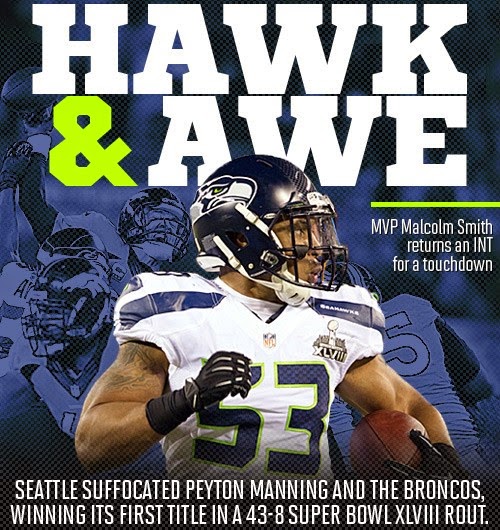Sometimes it was in the morning, if I was able to drag myself out of bed. Mornings were my preference, and before too long, this confirmed night owl was up before the sunrise. Sometimes it happened before retiring for the night.
More often, I just grabbed an hour or so wherever I could. I remember many times in an abandoned church building near where I lived, at my dining room table, in an empty classroom or lunchroom or conference room or a table at the library. Often times I parked for a while in a rest stop, or some wide spot in the road between here and there.
The first thing after I sat down was usually a sigh, and I’d just sit there for a few minutes. Then I’d open my knapsack or reach to my bookshelf and pull out three things: my Bible, my journal, and a mechanical pencil.
But before I opened any of them, we’d talk. “Hi Dad. Love you! I’m looking forward to what you’re going to show me today. Help me to see, eh? Help me to recognize what you’re showing me, please. Thanks. You’re awesome!” And I’d open both books at the ribbon.
In my Bible, I was working my way through one of the books, section by section. Most translations have headings dividing up the text: I’d tackle no more than the space from one heading to the next.
In my journal, I listed the date and the passage, and then I pushed that book out of my way, and I devoted my attention to the Bible.
I read the passage through. You know the way you read a text book assignment that you don’t love? Yeah, this was not that. I read it slowly enough that my attention didn’t drift. If I could, I’d read it quietly out loud.
During this time, I turned my imagination loose to walk among these people, hear the sounds, smell the smells of the story I read. If I was in an epistle, I’d listen for the apostle’s tone of voice, and I’d imagine how the people it was addressed to felt as they read it. If I felt like it, I’d look at a few cross references, but I guarded against bunny trails.
But more than anything, I waited for the light to go on. Invariably, one verse would catch my attention, as if my Father were pointing to it, and saying, “Look here, son.” Sometimes it was just a word, or a phrase. Maybe it was a repeated word. Or an idea that never actually made it into words.
If it didn’t happen the first time, I’d go back and read it again. I’d often underline the verbs, using a set of markings I developed for myself after years of this. If there was a list of things or a progression, I’d number the points. Sometimes I circled adjectives and adverbs. Sometimes I’d ask questions, of the text, of Father, about what was going on. But everything was just keeping me involved with the text until my attention was drawn to one part.
That signal was like arriving at the X on a treasure map. It meant “Dig here.” That was the real assignment.
The first part of digging was to write – legibly – the verse that stuck out to me into my journal. And then I go to work to interact with that verse, that passage, to dig for treasure in that spot. I figure that the investment of an hour was just about right, and good success would probably show evidence of at least one full page, more or less, of reaction in my journal.
So I looked closely. My personal Bible always has cross references, but is never a “Study Bible.” I don’t want to hear what other people think. I want to discover what God thinks, and see if I can make my own thinking line up with that.
My first step was pretty often to “center myself” and to dig into that little nudge itself, the nudge that said, “Dig here.” Often, that would give me some direction for my searching or meditation.
I used different tools to dig. Sometimes I would literally outline the sentences, like in English class in high school. Sometimes, I chased down the cross references, both those in the margins and especially the ones in my own heart.
But sometimes, it was just meditating on my one verse, reflecting it, asking questions of it, that brought the reward.
For example, when reading through Mark 8, I was caught by verse 31: “And he began to teach them that the Son of Man must suffer many things and be rejected by the elders and the chief priests and the scribes and be killed, and after three days rise again.”
This time, I found myself outlining what I saw in that verse:
1) What are the “many things” he would suffer? (I listed them, cross referenced to Matthew 20:19 for details.)
2) Who rejected him? (I listed them.)
3) He would be killed: he doesn’t say by whom.
4) He’d rise again after 3 days.
And as I was writing the outline, I realized I was thinking most about the fact that Jesus had never discussed this before. He was only free to talk about it after verse 29: after they realized that he was, in fact, the Messiah they were looking for.
I wrote for a while on what it must have been like, knowing that this terrible stuff was coming, and not having anybody – not a single person on the planet – that he could talk to about it.
I meditated for a while on how he himself learned of it, since he had been born as a normal baby (cf Philippians 2 and Hebrews 4:14,15) and he had to learn all this stuff in his own times with Father. I reflected on what that first conversation might have been like, when Father talked about what was going to happen.
And I realized that Jesus got his direction from – more or less – from the same thing that I was doing just now.
And I was done. Either I was out of time, or “the anointing lifted,” or something else. And that’s the point: I’m not looking to write a pretty article from this (though that came from it once or twice). I’m not looking for some big and powerful conclusion.
The big conclusion isn’t the point of this. The point is that Father and I have time together in his Word. Years later, I realized that he was training me – through these times – to hear his voice, and that it was remarkably effective. But even that training wasn’t the point. The point was our time together, our relationship.
Now, why have I just told you all this? It’s because of something I heard in our time together: I had the sense that some folks are pretty well grounded in hearing Father’s voice, but others are still scratching their heads and wondering how we do that?
Father showed me that during our times together, he was teaching me how to hear him, how to hear his voice and how to recognize his voice. And it seemed to me that he was suggesting that someone might want to follow the trail that he and I cleared together.
If you want to learn how to hear Father’s voice well, this is one way to learn. It has the additional benefit of giving you a solid grounding in the Bible.
If you decide to follow this trail, you have my blessing, and more important, Father’s. May you have as much fun in your time with Father on this trail as I have! I know he’ll enjoy his time with you!












